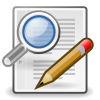Features: Difference between revisions
No edit summary |
No edit summary |
||
| Line 41: | Line 41: | ||
|?Feature examples = Examples | |?Feature examples = Examples | ||
| template=Feature/Record | | template=Feature/Record | ||
| format = template | |||
}} | }} | ||
Revision as of 15:31, 18 May 2020
This wiki runs on QualityBox; which comes with many extensions, gadgets plus configuration settings that make it particularly powerful. Follow each link in the table below for more information. If your knowledge platform doesn't have all these features, you should contact eQuality Technology for an upgrade. Here are a few resources to help you understand how QualityBox can fit into your company:
- QualityBox Demo site - we would be happy to give you a login to take it for a test drive.
- Our Wiki Report tool will provide you with a detailed look at your wiki (if it's public); which you can compare to ours
- We host QualityBox in a private cloud for each customer and can even host it on-premises for you.
- To grab a copy of these features in a spreadsheet for analysis, click the
link.Image Description Notes Examples Bootstrap 
A front-end web framework. Bootstrap allows you to easily create aesthetically pleasing layouts for your content. Bootstrap provides responsive, mobile-first front-end web development. It contains CSS- and JavaScript-based design templates for typography, forms, buttons, navigation, and other interface components. mw:Extension:Bootstrap first added here in January 2016, makes that framework available to this wiki. This is in addition to the built-in OOUI (Object Oriented User Interface) of MediaWiki We used Bootstrap to prototype a page for QualityBox https://wiki.freephile.org/wiki/index.php?title=QualityBox&useskin=chameleon CSS 
Add custom CSS to pages or sitewide Add CSS rules into your pages. CSS Categories 
The categories of articles in this Wiki, presented in a cloud. Relative size indicates how many articles are in the category. Thus it is both an interface and report on the wiki. It's created using the mw:Extension:Wiki Category Tag Cloud extension. In contrast, the MediaWiki built-in 'Categories' page (not a cloud) is at Special:Categories Visit the Categories page to see the 'cloud' display. CategoryTree 
Allows you to display a category in a tree fashion. The extension provides it's own tag, but we also simplify it with the Categorypage template I did edit MediaWiki:Categorytree-member-num to provide a full name interface Category:Wiki and the MediaWiki page, among others, use this. Certbot 
Certbot, from the Let's Encrypt project of the EFF, provides free and automated SSL certificates. For non-public sites, we can still generate certificates using DNS See File:Certificate grade.png Chameleon The 'skin' for your wiki determines the overall look and feel of the wiki. Chameleon skin, based on the Bootstrap framework (and the extension which enables it in MediaWiki) gives control over your layouts. If you ever wanted a wiki that **doesn't** look like Wikipedia, then Chameleon could be the answer. Made by Stephan Gambke (https://professional.wiki) and integrates Bootstrap 4 https://maps.extension.wiki/wiki/Maps_for_MediaWiki Citations 
Outputs several bibliographic formats for references From any page, there is an extra link in the toolbar to "Cite this Page" Cite this Page Delete 
Allows site administrators flexible powers to delete content. You can delete pages from a list of titles. There is a maintenance script by the same name (DeleteBatch). Dynamic content 
Create lists of other articles based on their category, namespace, title, references or template usage and include contents or arguments of template calls of those articles into your page. DPL is similar to Semantic MediaWiki in regard to it's capability to output content. The difference is that it does not create or rely on semantic data. Admin tips, User:Freephile/todo Elasticsearch 
This site uses Elasticsearch for an amazing search experience! The What, Why and Advantages of Elasticsearch Gadgets 
Gadgets are enhancements to MediaWiki, made of javascript and CSS; but not written as full-blown extensions. One of the best is the wikEd gadget implementation for the wikEd editor Glossary 
You use jargon at work; you're wiki should know that jargon. mw:Extension:Lingo first added here in January 2016 GPL HTML 
Manual:$wgRawHtmlallows editors to use HTML in page, making content re-use easier.This can be dangerous in a public wiki, but suitable for restricted editor groups. Interweb You can search all linked webs directly from the search box. Just enter the web prefix, followed by a colon. google: bananassearches Google for "bananas" and takes you there.Provided by mw:Extension:Interwiki Visit Special Webs to see the webs configured for this site. Search Google for bananas Interwiki links 
shorthand for making links to popular websites or other wikis that have a reliable pattern search for 'foo' on Google Lua 
Lua is used to give template authors more functionality than available through Parser functions. The debate to use JavaScript or Lua was settled in 2012. Lua can be used to analyze data, calculate expressions, and format results using functions stored in so-called 'modules' in the wiki. Merge 
The User Merge and Delete extension allows site administrators to easily manage contributions from defunct authors. Mermaid 
A diagramming language. Make diagrams and flowcharts for documentation, easier. With simple syntax, create sophisticated diagrams, flowcharts, GANTT Charts etc. Use the online editor to create your diagram See the example diagram at Sales Cycle Metadata 
Semantic MediaWiki is a large extension of the MediaWiki ecosystem. In wikis where it is deployed such as this one, you can have semantics (meaning) attached to your words and data so that the words and data are meaningful to the system. Your content becomes a database. Just like the spreadsheet allows knowledge workers to practically generate software applications, Semantic MediaWiki is no less revolutionary. Non-technical staff can create powerful databases with form-entry, reports, validations, etc. This page (Features) uses Semantic MediaWiki to provide a report on all the pages in the Feature Category Namespaces 
Using the namespaces feature of MediaWiki, you can setup areas that segregate content. Although MediaWiki is not a CMS designed for roles and access permissions, it nevertheless can be useful to segregate content in a wiki that should be 'nearby', but not in the same space. setup a 'private' namespace which is access restricted so that only a certain class of user can access that space. Because MediaWiki is not a CMS, pages in the private namespace would still show up in a search. However, the content would only be accessible to the group you set it to. So, you wouldn't use this feature to setup a space reserved for the 'human resources' group, and then draft a 'layoff' announcement because although nobody outside the HR group could read the announcement, it's existence would be knowable. On the other hand, 'status-update' wouldn't give too much of a clue about what the contents were. Nuke 
Allows site administrators flexible powers to delete content. You can mass delete articles by title, user, or ip address. You can use SQL wildcards To permanently delete (expunge) the records, you must delete archived revisions If you are an administrator, visit the Mass delete page. PDF 
Through PDF Handler, we can display thumbnails of PDF files uploaded into the wiki relies on gs convert and pdfinfoThe example on the right is used here and on the page Cloning. Parser functions 
There are built-in functions; and there are additional functions enabled by the mw:Extension:ParserFunctions As of v1.18, the ParserFunctions extension is bundled with a download of mw. You do need to enable it. Pretty URL 
clean and SEO friendly URLs https://freephile.org/wiki/Pretty_URL Replace text 
Power editing The Extension:Replace_Text provides a special page (at Special:ReplaceText) to allow administrators to do a global string find-and-replace on all the content pages of a wiki. It's a global search and replace tool that covers all content in the database and multi-media files. It is obviously useful in many circumstances. It features Regular Expressions support and shows a list of candidate matches before actually doing anything making it safer to 'test' a search and replace operation. Security 
Using SSL and TLS Deployment Best Practices, QualityBox gets an A+ rating for security. Certificates provided by the Let's Encrypt project See File:Certificate grade.png Svg 
The SVGEdit extension gives users the ability to draw in the wiki. Due to the nature of SVG, this is perfect for in-wiki illustrations, flow diagrams, org charts, and editing any SVG graphic file uploaded into the wiki. Svg Syntax Highlighting 
syntax highlighting is available for dozens of languages through the mw:Extension:SyntaxHighlight_GeSHi and the underlying Python Pygments library Apache shows config file highlighting; Library shows JavaScript; etc. Text Editor 
The WikiEditor extension is an extendable framework with a set of feature-based modules that improve the user experience of editing. It is also the editing interface that Wikipedia currently uses Available as the default editor in this wiki Timeless DrBond-Screen-Wiki-06.jpg Your 'skin' for your wiki determines the overall look and feel of the wiki. mw:skin:Timeless skin, based on the mw:Winter framework prototype, is live now on Wikimedia projects and mw:User:Isarra is carrying it forward. - Load this page with the Timeless skin
- Load this page with the Chameleon skin
Tooltips 
create icons with onmouseover tooltips works on this page, but not on the doc page?? as of 2016-01-19 Template:Tooltip/doc Video Blogging 
embed videos from 30 popular services directly into your wiki local content (mp4 files uploaded into the wiki) is displayed in a video player Visual editor 
A reliable rich-text editor for MediaWiki. Allows you to just "edit the page you see" while being aware of all the syntactically rich features of templates, extensions etc. The Visual Editor is available Here and on Wikipedia. Webserver reporting 
we add real-time visibility into the web server activity. Unlike Google Analytics, this reporting includes bot traffic, and is not mined by your provider. public_html/report.html
Bootstrap [[|link= ]]
]]
CSS [[|link= ]]
]]
Categories [[|link= ]]
]]
CategoryTree [[|link= ]]
]]
Certbot [[|link= ]]
]]
Chameleon [[|link=]]
Citations [[|link= ]]
]]
Delete [[|link= ]]
]]
Dynamic content [[|link= ]]
]]
Elasticsearch [[|link= ]]
]]
Gadgets [[|link= ]]
]]
Glossary [[|link= ]]
]]
HTML [[|link= ]]
]]
Interweb [[|link=]]
Interwiki links [[|link= ]]
]]
Lua [[|link= ]]
]]
Merge [[|link= ]]
]]
Mermaid [[|link= ]]
]]
Metadata [[|link= ]]
]]
Namespaces [[|link= ]]
]]
Nuke [[|link= ]]
]]
PDF [[|link= ]]
]]
Parser functions [[|link= ]]
]]
Pretty URL [[|link= ]]
]]
Replace text [[|link= ]]
]]
Security [[|link= ]]
]]
Svg [[|link= ]]
]]
Syntax Highlighting [[|link= ]]
]]
Text Editor [[|link= ]]
]]
Timeless [[|link=DrBond-Screen-Wiki-06.jpg]]
Tooltips [[|link= ]]
]]
Video Blogging [[|link= ]]
]]
Visual editor [[|link= ]]
]]
Webserver reporting [[|link= ]]
]]
Generally speaking, you can see what extensions are installed in a wiki by visiting the Special:Version page, however that doesn't explain what the extensions do; and it certainly doesn't describe the features included in core.